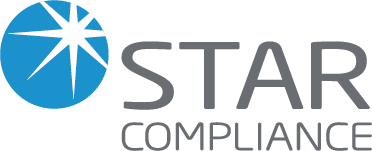The FCA relies on accurate and timely information from financial firms in order to identify malpractice and monitor their regulatory compliance. Failure to comply can result in severe consequences, not least of all significant fines. Use the recommendations in this guide to prepare your FCA reports and stay compliant.
The risks of FCA non-compliance
How to maintain FCA compliance
What is the FCA?
The Financial Conduct Authority (FCA) is the leading regulatory body for all financial services in the United Kingdom. Working with the Prudential Regulation Authority, the FCA supervises the conduct of 50,000 firms to ensure all parties act with integrity and transparency. The FCA’s primary objective is to protect the consumer and foster trust in the financial services market.
The FCA oversees and regulates activities related to investment advice, portfolio management, money services, and consumer credit services. This regulation encourages a healthy competition between firms as they prioritize the customer experience, which thereby stimulates growth and trains the focus on quality of service rather than profit.
An overview of FCA compliance requirements
The FCA monitors the financial markets largely through reports generated by the firms themselves, who must follow FCA reporting requirements to the letter to avoid an investigation. Depending on the type of organization, firms are obligated to report on all or some combination of the following:
- Business activities and operations: Provide a clear and concise overview of all FCA-regulated activities and demonstrate how they intend to carry out the regulated activities. Provide a budget for the next three years and include an analysis of their competitive position in the market.
- Business structure / senior management structure / behavior: Demonstrate how the business will be organized, managed, and overseen per Senior Managers and Certification Regime (SMCR) requirements. Include an explanation of their branch network, any outsourcing arrangements, and how their agents will be utilized.
- Corporate governance and risk management: Provide an overview of a clear organizational structure with well-defined, transparent, and consistent lines of responsibility. Include an explanation of how they mapped the risks and what tools they use to protect the business, their customers, and the industry at large.
- Financial stability: Provide evidence that they have met the initial capital requirements pertaining to their level at the point of authorization.
- Financial controls: Demonstrate safeguarding arrangements for relevant funds, contracts with credit institutions, copies of insurance policies, agreements, or a comparable guarantee.
- Financial promotions: Ensure that any customer-facing communications or financial promotions are clear, fair, and not misleading.
- Customer response: Demonstrate implementation of an effective, efficient, and customer-friendly approach to handling complaints. Include an overview of appropriate training for customer-facing employees.
- Staff training: Show proof of training programs and applicable staff education covering FCA compliance, financial crime prevention, new methods and practices, and regulatory changes.
- Record keeping: Provide evidence of record keeping systems, including customer and transactional records, as well as documentation of training, competence, supervision, and recruitment.
- IT systems and controls / business continuity / operational resilience: Demonstrate robust IT systems and controls and have an adequate operational and security risk management framework. Provide evidence of protection and privacy policies in accordance with the GDPR and local acts. Outline their strategies to ensure business continuity, as well as disaster recovery plans for the business and IT infrastructure.
- Communication structure: Clarify how management decisions are relayed to staff.
- Third-party relationships: Retain all contracts and agreements of work with third-party suppliers. Collect intelligence and perform ongoing monitoring and oversight of third-party providers’ performance and adherence to the agreements.
The risks of FCA non-compliance
As with any regulatory non-compliance, there are steep penalties for falling out of compliance with the FCA. Consequences include:
- Substantial fines
- Firm-wide or individual suspensions
- Lawsuits
- Negative media coverage
- Reputational damage
Since these penalties could have devastating, long-term effects on a firm’s reputation, they serve as a reminder for firms of all sizes to invest in a culture of compliance, including implementing systems that catch potential risks before they can manifest.
How to maintain FCA compliance
Any organization that intends to perform payment services in the UK must ensure that they are in compliance with the FCA’s regulations, detailing all aspects of their business. Here’s how your firm can maintain compliance long-term:
- First and foremost, make sure all relevant parties at your firm understand FCA regulations and what is expected of them. Familiarize yourself with the FCA handbook, follow their updates and announcements, and thoroughly review all other regulations that apply to your business, such as SMCR.
- Check that all criteria have been met for FCA authorization, including transparent cash flows and clear lines of responsibility. Complete all necessary reports and appoint a knowledgeable point person to oversee all actions related to FCA compliance. Doing so will indicate that your firm is trustworthy and well-managed and that you have made appropriate efforts to remain registered.
- Work to establish a strong culture of compliance if you have not already begun. This begins with enacting policies that establish clear, effective communication systems, transparency from senior management, and training programs that ensure employees understand how to maintain compliance. Those in leadership positions have a responsibility to lead by example, so a compliance-first mindset must come from the top.
- To support that culture of compliance, implement software systems that can monitor for compliance much more effectively than humans can. This relieves compliance teams of the burden of monitoring and avoids the risk of overlooking red flags, making compliance more efficient and accurate.
- Along with compliance software, make sure your data collection and reporting controls are strong, and all necessary data is captured and stored appropriately. Your reporting systems should be able to produce accurate reports, ready for FCA review. Additionally, ensure your current policies are in accordance with the latest FCA and SMCR reporting requirements.
- Shore up your record-keeping systems, which should include all records pertaining to financials, risk exposure, third-party contracts, learning and development, competence, supervision, and recruitment. Records should be kept for at least five years before being destroyed.
- Regularly upskill your staff with compliance training, changing FCA regulations, and fair treatment of customers, a major priority for the FCA. Anyone responsible for maintaining compliance should feel confident in their duties, empowered to escalate perceived risks, and understand that regulations evolve, so refresher courses and continuing education is a must. Customer-facing staff should also know how to appropriately handle feedback and criticism with an eye to maintaining customer loyalty.
- Own your responsibility for FCA compliance. You must be prepared to assume accountability for any misconduct if the FCA takes action.
If you operate in the UK financial markets, it is your obligation to stay informed of FCA developments and establish systems that ensure compliance long-term. Star Compliance offers a suite of software solutions that solve for FCA compliance, including SMCR requirements, employee conflicts of interest, and training and competency solutions. Explore your options today, and let Star help you establish and sustain a culture of compliance.
Making compliance simple and easy
Our user-friendly tool is solving today's biggest compliance challenges. See for yourself why 250+ financial institutions across the globe trust StarCompliance.


